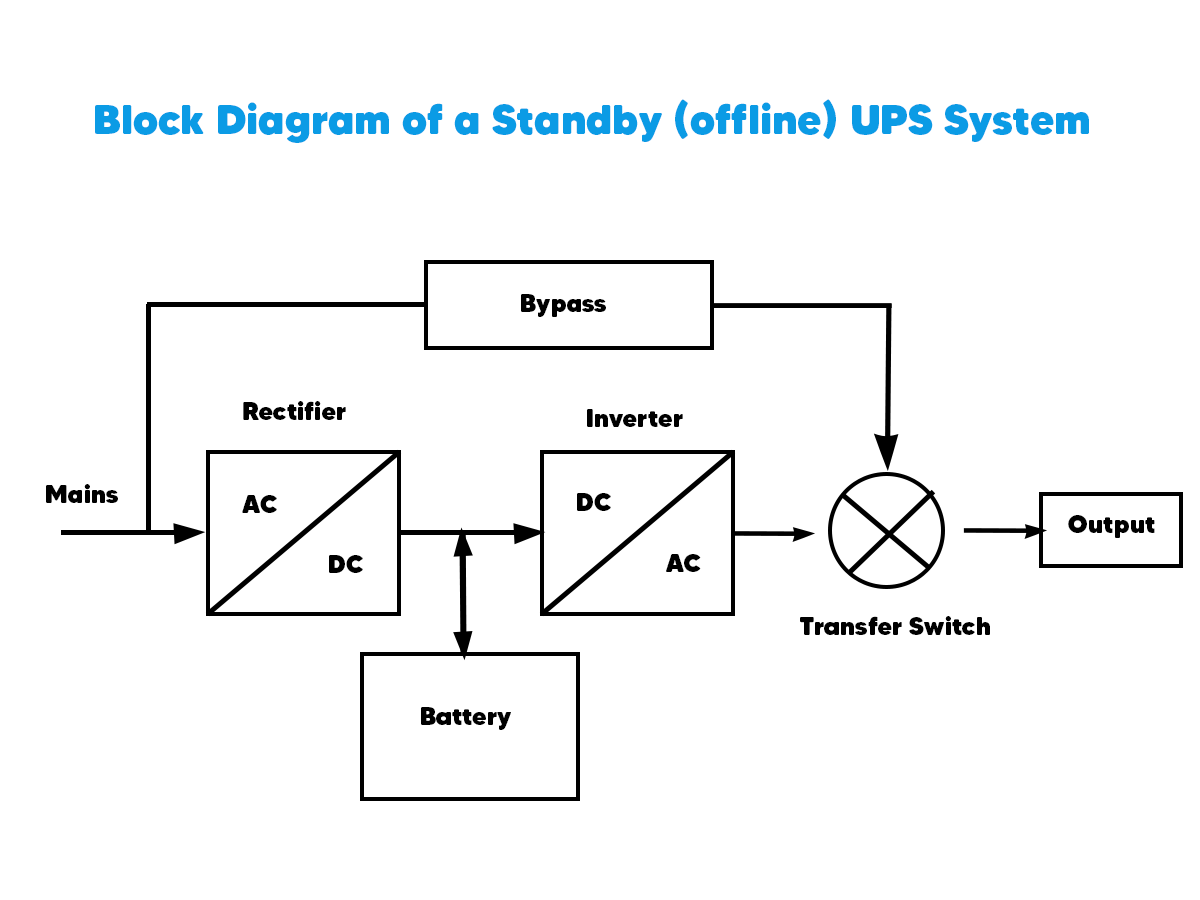In today’s digital age, uninterrupted power supply is crucial for both work and leisure. Whether you’re running a business, working from home, or simply enjoying entertainment, power outages can disrupt your activities and even damage your equipment. This is where an AC UPS (Uninterruptible Power Supply) becomes essential. In this blog, we’ll explore what an AC UPS is, how it works, the different types available, and the pros and cons of using one.
What is an AC UPS?
An AC UPS is a device designed to provide backup power to electrical devices that run on Alternating Current (AC). AC is the standard form of electricity supplied by power outlets in homes and businesses. The primary role of an AC UPS is to keep your devices powered during a power outage, preventing data loss, work interruptions, and equipment damage.
How Does an AC UPS Work?
An AC UPS typically consists of the following components:
- Battery: Stores energy to be used during a power outage.
- Inverter: Converts the DC (Direct Current) stored in the battery back into AC to power your devices.
- Rectifier/Charger: Converts incoming AC power to DC to charge the battery when the power is on.
- Transfer Switch: Automatically switches from the main power supply to the battery when a power outage is detected.
When the primary power source fails, the AC UPS instantly switches to battery power, ensuring that connected devices continue to run without interruption. Once the power is restored, the UPS switches back and begins recharging the battery for future use.
Types of AC UPS
AC UPS systems are categorized into three main types, each suited to different applications:
- Standby (Offline) UPS

- Description: The most basic type of UPS, primarily used for home computers and small electronics. It remains idle until a power outage occurs.
- Operation: During an outage, it switches to battery power in milliseconds, providing enough time to save work and safely shut down the device.
- Best For: Home use, small office setups.
- Line-Interactive UPS

- Description: A more advanced UPS that can handle minor power fluctuations without switching to the battery.
- Operation: It uses an autotransformer to regulate low or high voltages, providing better protection against power surges and sags.
- Best For: Small to medium-sized businesses, home offices.
- Online (Double-Conversion) UPS

- Description: The most sophisticated type of UPS, offering the highest level of protection. It continuously converts incoming AC to DC and then back to AC, ensuring a clean, consistent power supply.
- Operation: Provides seamless power during outages and isolates connected devices from power irregularities.
- Best For: Data centers, critical infrastructure, high-end servers.
Pros of AC UPS
- Protection Against Power Interruptions: Keeps devices running during outages, preventing data loss and work disruptions.
- Voltage Regulation: Some types, like line-interactive and online UPS, can protect against voltage fluctuations, surges, and sags.
- Equipment Protection: Prevents damage to sensitive electronics by providing a stable power supply.
- Versatility: Can power a wide range of AC-powered devices, from home computers to servers and networking equipment.
Cons of AC UPS
- Size and Weight: AC UPS systems, especially those with lead-acid batteries, tend to be bulky and heavy.
- Cost: Higher-end models, like online UPS, can be expensive, especially for larger setups.
- Maintenance: Lead-acid batteries used in many AC UPS systems require regular maintenance and have a shorter lifespan compared to other battery types.
- Noise: Some models can produce noise, especially if they have internal fans or if the inverter operates frequently.
When Should You Use an AC UPS?
- Home Offices: Protect your computer, modem, and router to maintain connectivity and prevent data loss.
- Small Businesses: Ensure that essential equipment like servers, point-of-sale systems, and networking devices remain operational during power outages.
- Data Centers: For critical infrastructure, an online UPS is essential to prevent downtime and protect against data loss.
- Gaming and Entertainment: For gamers and media enthusiasts, an AC UPS can prevent disruptions and potential data corruption.
Conclusion
An AC UPS is an essential device for anyone who relies on uninterrupted power for their electronic devices. Whether you’re protecting a home office setup, a small business, or a large data center, understanding the different types of AC UPS systems and their benefits will help you choose the right one for your needs. By investing in an AC UPS, you can ensure that your devices remain operational, your data stays safe, and your workflow is uninterrupted, no matter what happens with the power supply.
